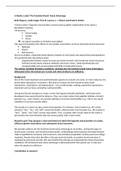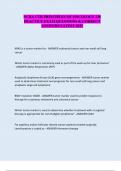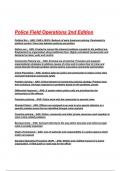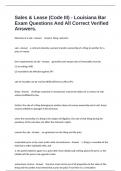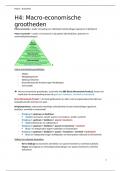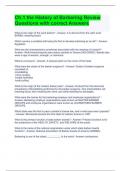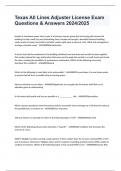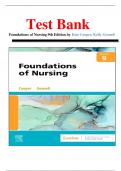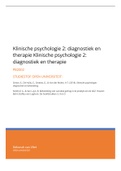Is Nestle a Lady? The Feminine Brand Name Advantage
Ruth Pogacar, Justin Angle, Tina M. Lowrey, L. J. Shrum and Frank R. Kardes
A brand name’s linguistic characteristics convey brand qualities independent of the name’s
denotative meaning.
For instance:
Name length,
Sounds
Stress
can signal masculine or feminine associations.
This research examines the effects of such gender associations on three important brand outcomes:
Attitudes
Choice
Performance
Across six studies, using both observational analyses of real brands and experimental manipulations
of invented brands, the authors show:
- Linguistically feminine names increase perceived warmth, which improves brand outcomes.
- Feminine brand names enhance attitudes and choice share—both hypothetically and
consequentially and are associated with better brand performance.
The authors establish boundary conditions, showing that the feminine brand name advantage is
attenuated when the typical user is male and when products are utilitarian.
Background
One of the most important and underestimated aspects of a brand is its name. In most instances, the
brand name represents a consumer’s first point of contact and can therefore drive initial
impressions, associations, and expectations. Just as with people, making a good first impression is
important and can have cumulative, lasting benefits.
One goal of brand naming is to create a name that signals desirable attributes, and brand name
developers have several tools for doing so. They can create names that explicitly indicate a brand’s
purpose (e.g., Lean Cuisine), use unusual spelling to increase memorability (e.g., Citi) or use sound
repetition to increase positive affect.
The sounds in a name can also convey brand gender. For instance, front vowels (e.g., the vowel
sounds in “tea,” “tin,” and “tell”) convey femininity, whereas back vowel sounds (e.g., the sounds in
“tool,” “tome,” and “tusk”) convey masculinity. Thus, a product with a front vowel in the name is
perceived to be more feminine than the same product with a back vowel.
Research goal: They propose a new mechanism by which the linguistic characteristics of a name
influence gender associations and subsequent brand outcomes.
We provide evidence for the feminine brand name advantage in six studies, varying the types of
brands (real, invented, and Interbrand top brands), methodology (observational and experimental),
stakes (hypothetical, temporal, and economic), and participant population (online panel and college
students). Results show that the effect of brand name femininity on positive brand outcomes is
mediated by perceived warmth. We also identify theoretically and substantively relevant boundary
conditions: the feminine brand name advantage is attenuated when the typical user is male and
when the product is utilitarian
Contribution to research:
, Our research makes important theoretical and substantive contributions. First, we contribute to the
literature on brand name linguistics. We introduce a more nuanced approach to studying how names
influence gender perceptions that incorporates multiple linguistic dimensions (name length, sounds,
and stress), distinct from prior research, which has focused primarily on sounds. Second, this work
adds to the Stereotype Content Model literature by demonstrating that linguistic features of a brand
name can result in the transfer of associated stereotypes to a brand. Thus, a brand with no inherent
gender can be imbued with masculine or feminine stereotype traits via its name—which managers
can leverage to influence brand outcomes.
What decides if it is masculine or feminine?
Yet these names differ on three key properties: Nestl´e has more syllables than Gap, with stress
divided between two syllables rather than one, and Nestl´e ends with a vowel sound, whereas Gap
ends with a consonant. Thus, Nestl´e is linguistically feminine, whereas Gap is linguistically masculine.
We propose that these automatically processed linguistic qualities will lead to implicit associations
with feminine or masculine attributes, independent of explicit brand associations.
Hypothesis:
H1: Brand name femininity is associated with positive brand outcomes (attitudes, choice, and
performance).
H2: Perceived brand warmth mediates the feminine brand name advantage.
H3: The feminine brand name advantage is attenuated when the typical user is male. (when using
which name)
H4: The feminine brand name advantage is stronger for hedonic than utilitarian products.
This study conducted six different studies:
Study 1:
In Study 1, we test whether feminine brand names are associated with brand performance (H1).
Performance was indicated by inclusion on the Interbrand Global Top Brands list between 2000 and
2019. Interbrand constructs an annual list of top-performing brands based on criteria that include
market share and brand strength (Interbrand 2018).
Result: on-performance-based Thompson Reuters list; p ¼ .031). These findings offer preliminary,
real-world evidence of a feminine brand name advantage (H1). Moreover, the Interbrand data
arguably provide a conservative test because they include product categories that, as we show
subsequently, reduce the feminine brand name advantage (male user, utilitarian). Importantly,
though, these results are correlational and thus cannot address causality
Study 2:
In Study 1, we found correlational evidence for the feminine brand name advantage among real
brands. In Study 2, we test the hypothesis that the feminine brand name advantage is mediated by
warmth perceptions (H2). To enhance realism, we collected participants’ warmth and attitude
evaluations of real brands.
Five hundred twenty-four members of the MTurk online panel (51% men; Mage ¼ 36.79 years; 99%
native English speakers) participated for a nominal fee. Each participant was presented with a
randomly selected subset of 10 of the 50 brands and, for each brand, answered warmth and brand
attitude measures in random order
Study 2 supports the hypothesized process in H2: feminine brand names are positively associated
with warmth, which is positively associated with brand attitudes. However, the direct effect of brand
name gender on attitude was not significant.
Ruth Pogacar, Justin Angle, Tina M. Lowrey, L. J. Shrum and Frank R. Kardes
A brand name’s linguistic characteristics convey brand qualities independent of the name’s
denotative meaning.
For instance:
Name length,
Sounds
Stress
can signal masculine or feminine associations.
This research examines the effects of such gender associations on three important brand outcomes:
Attitudes
Choice
Performance
Across six studies, using both observational analyses of real brands and experimental manipulations
of invented brands, the authors show:
- Linguistically feminine names increase perceived warmth, which improves brand outcomes.
- Feminine brand names enhance attitudes and choice share—both hypothetically and
consequentially and are associated with better brand performance.
The authors establish boundary conditions, showing that the feminine brand name advantage is
attenuated when the typical user is male and when products are utilitarian.
Background
One of the most important and underestimated aspects of a brand is its name. In most instances, the
brand name represents a consumer’s first point of contact and can therefore drive initial
impressions, associations, and expectations. Just as with people, making a good first impression is
important and can have cumulative, lasting benefits.
One goal of brand naming is to create a name that signals desirable attributes, and brand name
developers have several tools for doing so. They can create names that explicitly indicate a brand’s
purpose (e.g., Lean Cuisine), use unusual spelling to increase memorability (e.g., Citi) or use sound
repetition to increase positive affect.
The sounds in a name can also convey brand gender. For instance, front vowels (e.g., the vowel
sounds in “tea,” “tin,” and “tell”) convey femininity, whereas back vowel sounds (e.g., the sounds in
“tool,” “tome,” and “tusk”) convey masculinity. Thus, a product with a front vowel in the name is
perceived to be more feminine than the same product with a back vowel.
Research goal: They propose a new mechanism by which the linguistic characteristics of a name
influence gender associations and subsequent brand outcomes.
We provide evidence for the feminine brand name advantage in six studies, varying the types of
brands (real, invented, and Interbrand top brands), methodology (observational and experimental),
stakes (hypothetical, temporal, and economic), and participant population (online panel and college
students). Results show that the effect of brand name femininity on positive brand outcomes is
mediated by perceived warmth. We also identify theoretically and substantively relevant boundary
conditions: the feminine brand name advantage is attenuated when the typical user is male and
when the product is utilitarian
Contribution to research:
, Our research makes important theoretical and substantive contributions. First, we contribute to the
literature on brand name linguistics. We introduce a more nuanced approach to studying how names
influence gender perceptions that incorporates multiple linguistic dimensions (name length, sounds,
and stress), distinct from prior research, which has focused primarily on sounds. Second, this work
adds to the Stereotype Content Model literature by demonstrating that linguistic features of a brand
name can result in the transfer of associated stereotypes to a brand. Thus, a brand with no inherent
gender can be imbued with masculine or feminine stereotype traits via its name—which managers
can leverage to influence brand outcomes.
What decides if it is masculine or feminine?
Yet these names differ on three key properties: Nestl´e has more syllables than Gap, with stress
divided between two syllables rather than one, and Nestl´e ends with a vowel sound, whereas Gap
ends with a consonant. Thus, Nestl´e is linguistically feminine, whereas Gap is linguistically masculine.
We propose that these automatically processed linguistic qualities will lead to implicit associations
with feminine or masculine attributes, independent of explicit brand associations.
Hypothesis:
H1: Brand name femininity is associated with positive brand outcomes (attitudes, choice, and
performance).
H2: Perceived brand warmth mediates the feminine brand name advantage.
H3: The feminine brand name advantage is attenuated when the typical user is male. (when using
which name)
H4: The feminine brand name advantage is stronger for hedonic than utilitarian products.
This study conducted six different studies:
Study 1:
In Study 1, we test whether feminine brand names are associated with brand performance (H1).
Performance was indicated by inclusion on the Interbrand Global Top Brands list between 2000 and
2019. Interbrand constructs an annual list of top-performing brands based on criteria that include
market share and brand strength (Interbrand 2018).
Result: on-performance-based Thompson Reuters list; p ¼ .031). These findings offer preliminary,
real-world evidence of a feminine brand name advantage (H1). Moreover, the Interbrand data
arguably provide a conservative test because they include product categories that, as we show
subsequently, reduce the feminine brand name advantage (male user, utilitarian). Importantly,
though, these results are correlational and thus cannot address causality
Study 2:
In Study 1, we found correlational evidence for the feminine brand name advantage among real
brands. In Study 2, we test the hypothesis that the feminine brand name advantage is mediated by
warmth perceptions (H2). To enhance realism, we collected participants’ warmth and attitude
evaluations of real brands.
Five hundred twenty-four members of the MTurk online panel (51% men; Mage ¼ 36.79 years; 99%
native English speakers) participated for a nominal fee. Each participant was presented with a
randomly selected subset of 10 of the 50 brands and, for each brand, answered warmth and brand
attitude measures in random order
Study 2 supports the hypothesized process in H2: feminine brand names are positively associated
with warmth, which is positively associated with brand attitudes. However, the direct effect of brand
name gender on attitude was not significant.


